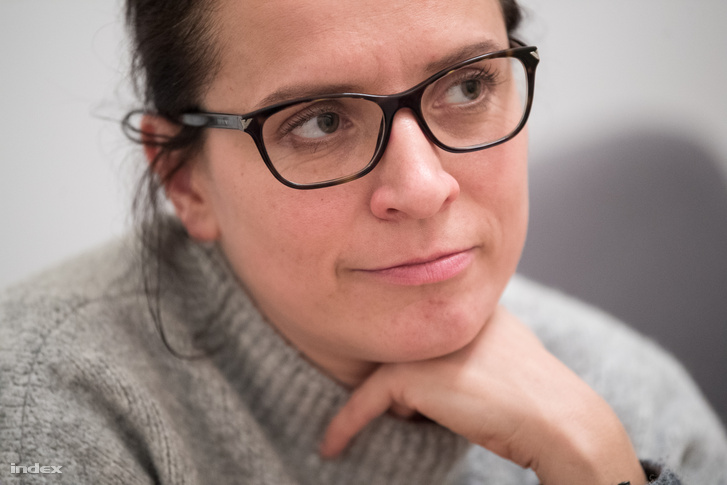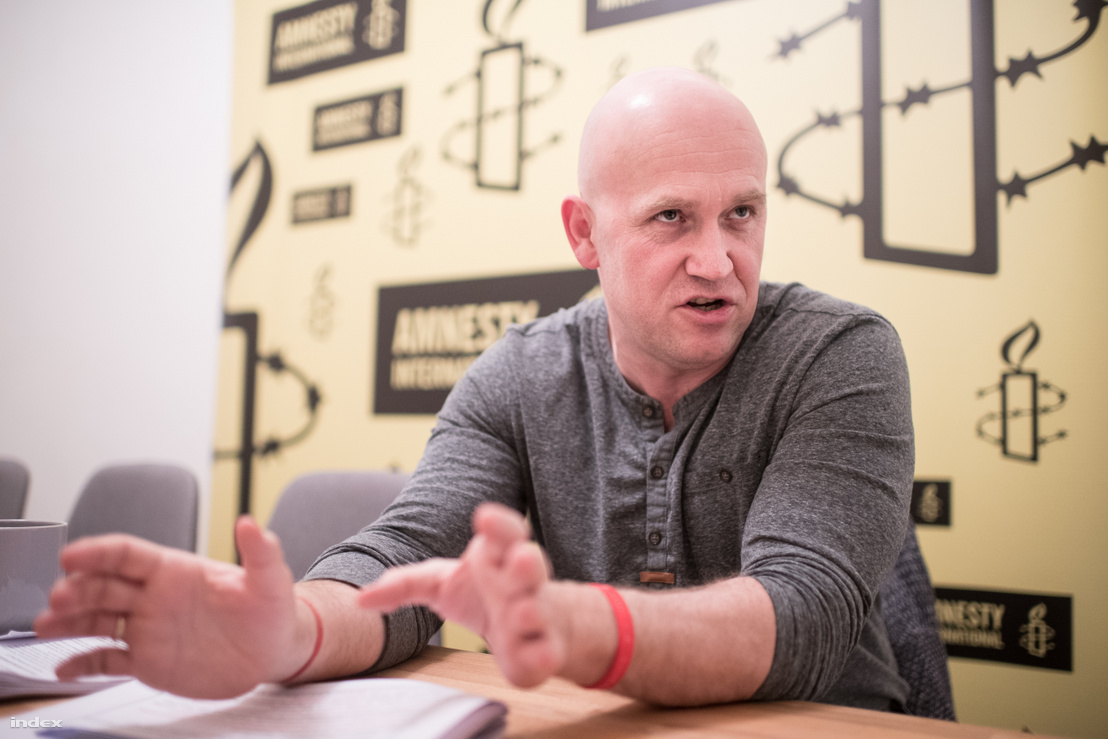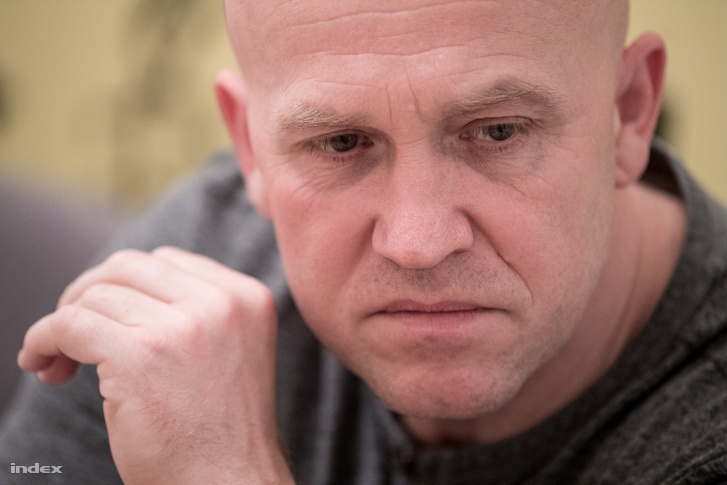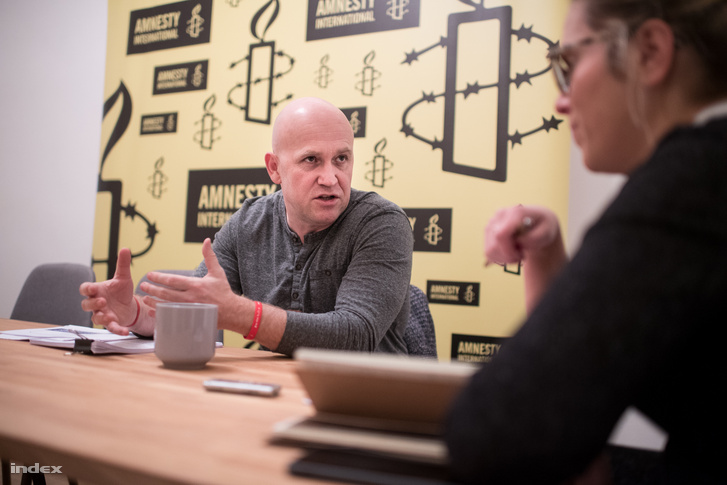Targeted for doing their jobs - Polish judges on the 'muzzle law'

További In English cikkek
- Since 2015, the Polish government has introduced a series of new legislative and policy measures that critics claim have already undermined the independence of the judiciary.
- These include politicizing judicial appointments, giving the minister of justice the exclusive power to dismiss and appoint presidents and vice-presidents of courts.
- Between September 2017 and February 2018, the Polish authorities removed more than 130 presidents and vice-presidents of common courts and replaced them with officials chosen by the minister of justice.
- The laws on the Supreme Court and the National Council of Judiciary were also changed so that members of NCJ are elected by politicians, not by judges (contrary to Polish Constitution)
- In June 2019, the Court of Justice of the European Union ruled that the amended law on the supreme court was in breach of EU law, while in November, the court also declared that the law introducing different retirement ages for female and male judges was discriminatory and against EU law. In its November of 2019 judgment (so-called Polish National Judicial Council case), the ECJ instructed courts to check whether particular Polish courts are independent and provided a clear set of criteria by which the independence of the new NCJ and Disciplinary Chamber of the Supreme Court could be assessed.
- Poland's ruling nationalist Law and Justice Party (PiS) says its reforms make the judiciary more efficient and they announced that they are not willing to walk back on their plans.
- The latest bone of contention is a draft law called “the muzzle law”, that was already approved by the lower house of Parliament in December. It would allow for disciplinary action against judges who question planned reforms. The new law is the government's response to the ECJ's most recent verdict, and it forbids judges to apply ECJ measures regarding the court's independence. The bill would bring the remaining free elements of the Polish courts under the political control of the executive branch, spelling the end of the separation of powers in Poland, European judicial associations and international institutions say.
- On January 11, Polish judges marched for their independence together with their colleagues and other lawyers from Europe.
- Two weeks earlier, the European Commission has requested that the Court of Justice of the EU (CJEU) issue interim measures to stop the disciplinary regime which threatens the independence of Poland's judiciary. The CJEU later has responded to this request.
- The Polish Senate rejected the latest draft law on last Friday, but the lower house of the Polish Parliament (Sejm) revoted on the bill last week and the PiS had enough majority to approve it.
- At the same time, the Supreme Court ruled: the new NCJ and the new Supreme Court's Disciplinary Chamber could not meet the independence criteria, nor can the approximately 300 judges appointed by the Minister of Justice.
Index: What's next in Poland?
Monika Frackowiak (MF): Everything is very dynamic in Poland now and every day brings something new. Since late 2015, the government of Poland has adopted and implemented a set of legislative and policy measures with a clear goal in mind: to undermine the independence of the judiciary. Most recently, however, what we see is that the Polish Senate rejected the new bill but the government party has enough majority to vote again in the lower house of parliament. And then it goes to our president of the republic and we can only think that he is going to sign it because of what he has just recently shown and said about judges.

Dariusz Mazur (DM): It looks he will sign it as soon as possible because his opinion about the Polish judges is that they are a part of the postcommunist system and they should be kept firmly in hands of the ruling party. That is not an exact quote from him, but a summary of his numerous statements.
So what is really going to happen to the Polish judges?
DM: Well, the problem is that soon, we can also expect an interim measure from the CJEU consisting of freezing the Supreme Court Disciplinary Chamber. So the question is what direction will our government take after this decision of the CJEU. Because that CJEU judgment would be crucial for our government. Of course, on the one hand, our government could say: we don't care for it because we want to finish – as they call it - the “reform”. But on the other hand, with the bill called “the muzzle law,” they gave a new impetus to the fundamental rule of law investigation of the EU against Poland. This can easily reinforce the negative views in the European Union and the desire to establish a new mechanism for the protection of fundamental rights – in order to strengthen independent justice – in each EU-member.
In addition, there will be a presidential election in Poland in May and there is a paradox political situation. While the right-wing ruling party's popularity is on the top after the last year's election, a large majority of Polish society, around 80 percent, is supporting the EU membership. So it is not easy to predict how the negative relationship between Poland and the EU will affect the presidential election. We are not politicians, so it is difficult to take a stand on this, but my personal opinion is that the ruling party is not in such a comfortable position right now.
What do you think is the purpose of the government? Do they want to leave the EU?
MF: This is a political question, not easy to answer for me as a judge. We can be sure that they would never say they are leaving because of the public perception just mentioned. But step by step, we see that they are moving away from the EU. And what they really want to achieve is a full power in Poland, with total control over everything. So that is why the judiciary so important for our government: that is why they want to grab control over the whole judiciary of Poland. But the EU is an organization that doesn't allow those situations when somebody has total power. So our situation is very complicated now.
How did the judges become enemies of the government? Just because of your independence?
DM: Yes, absolutely. From an ideological point of view, if you want to establish an autocratic system with a mono-power of one man who is a kind of master of puppets, you would not be satisfied if you collided with plenty of independent judges. There are ten thousand judges in Poland, and the vast majority are completely independent of any political ideology, including yours, the ruling party's. So this is just unacceptable from your ideological point of view. And of course, from time to time, cases appear that violate the sensitivities of some actors in the political environment. Political mono-power does not tolerate any kind of restriction or control.
MF: Yes, Mr. Jarosław Kaczyński said a few months ago that judiciary “is the last obstacle in Poland to achieve our goals”. It means that the government's goal is actually, in fact, to be in control of everything. What they say is that “we want to make Poland great again”. Judiciary is the last obstacle to prevent this, they think.
DM: Of course the same problem is with the independent media, which is another big obstacle to gain monopolistic power. In Poland, there are independent TV channels which are still strong, despite the fact that the government wanted to eliminate, for example, the TVN. They imposed a huge fine on TVN because of an alleged lack of objectivity in one of the news programs. Unfortunately for the government, this channel is a part of an American great “Discovery” company and under pressure from the US Department of State, therefore they had to abandon their plans. But they were originally intended to renationalize the media.

The government obviously has its own publicity. Are their campaigns successful, have those made the judges an enemy to the Polish society?
MF: They have been partially successful, as there are some areas in Poland where people can only access the public media. And from public radio and TV, these people only hear that judges are enemies of the nation. And if you look at the polls, it is clear: 4 years ago, more than 40 percent of the society trusted the judiciary, and now it's below 30 percent. But on the other hand, civil society was awakened and many people saw the process and its goals and started to organize themselves. So the vicious attempt to subordinate the judiciary also had a good effect too.
Wasn' t it too late for this awakening?
DM: No, that was just the beginning. It is important to see that in 2017, when the government made the first changes against the independent judiciary by trying to force to retirement all justices of the Supreme Court and giving full power to the Minister of Justice to arbitrarily appoint their successors, hundred thousand of people demonstrated in over three hundred Polish cities. And then the president Andrzej Duda has vetoed the roughest bill on the Supreme Court and the National Council of Judiciary (NCJ). I don't think he did it because he was against the idea, but rather because he was quite afraid of the popularity loss affecting chances of his potential re-election in the future.
That was at the end of July in 2017, but not much later, in September, the government started a great negative campaign against the judges on billboards, in TV, press and on the Internet. There were thousands of black and white billboards on the streets saying on the black side: judges think they are a privileged caste, and on the white side, the positive message wanted to be “the great reform will cultivate a clean situation and punish those judges who break the law”. They suggested that the judges were breaking the law, being corrupt. This campaign was conducted by the Polish National Foundation which was created by the parliament and it was financed by the 17 biggest Polish state-owned companies. The action cost more than 2 million euros and was run by the ruling party. It showed the Polish judiciary in a distorted mirror showing some true, but mostly false or manipulated examples of judicial misconduct. The examples of the manipulated descriptions were stories like the judge that stole trousers from a shop. It was manipulated: the situation by itself has really happened, but that judge at the moment of the theft has been retired for many years and he had a severe mental illness.
Is the trouser-stealing story supposed to prove that judges are corrupt?
DM: One of my colleagues said that George Orwell or Monty Python could not have come up with a more peculiar idea than the billboard campaign. And that is true. After these posters and dark web news came the second wave of the denigrating PR campaign against the judiciary. The newly-appointed Prime Minister, Mateusz Morawiecki joined the front lines of this propaganda campaign, this time mainly advocating abroad. Firstly with the false idea that the Polish judges are personal remains of the communist system, which is totally absurd, as the average age of Polish judges is 42, so they were around 12 at the time of the fall of communism. The second most common accusation by the PM against Polish judges was that they are corrupt. But we, as the Association of Judge “THEMIS” asked the disciplinary part of the Supreme Court about the number of disciplinary proceedings against judges charged with taking a bribe between 2007 and 2017. How many do you think there were?
I don't want to guess.
DM: It was literally one case. And that one judge was removed from the judicial profession. There are ten thousand judges in Poland.

And this single case was Mr. Morawiecki ' s example?
DM: No, the PM did not specify the sources of his revelations or any statistical data confirming them. He just wanted to suggest that, for example, among judges of the Kraków Regional Court (where there are some critical judges) there is an “organized crime group”. It has never been ascertained that there is corruption in Polish courts as a trend. It is really not a systemic problem in Poland. Probably there are individual problems which can occur among ten thousand people. But in his numerous speeches and interviews abroad, our PM presented his theories on the crimes of Polish judges, even comparing us to Nazi collaborators.
Are you serious?
DM: In an interview, the Prime Minister reported that at the meeting with the President of France, he compared Polish judges and courts to courts of Vichy France collaborating with the Nazis, simultaneously claiming that the removal of this strain from the French judiciary took place quicker than the de-communization of the Polish judiciary. And after these prominent speeches of the PM came the third wave of denigrating PR propaganda: we became aware of the existence of a special group rooted in the Ministry of Justice with the deputy Minister of Justice, Mr. Piebiak as its head. The nick-name of the group was “KASTA”. As it was investigated by independent media, the group consisted of 13 people including 4 members of neo-National Council of Judiciary (NCJ), 2 deputies of the Main Disciplinary Commissioner and one judge of the newly created Disciplinary Chamber of the Supreme Court. The presence of these prominent people in a group of haters confirms that the most important new institutions created under the so-called “great reform” of the Polish justice system are politically corrupt and morally compromised. This group designed negative PR campaigns addressed against the entirety of the judicial profession. It was distributed in the pro-government media and on the internet, often attacking those individual judges who guard the independence of the judiciary, usually the members of judicial associations.
When I was doing my research, I noticed that you both have personal experiences with these campaigns. Can you tell me about this?
MF: Not just us, many judges have been subjected to smear campaigns and online harassment, including on social media. A Twitter account named KastaWatch has routinely published tweets amounting to online harassment and abuse of judges known for their criticism of the “reform”. The account also published screenshots of documents regarding disciplinary proceedings against specific judges, decisions of disciplinary courts, and information about judges' trips abroad, as well as other information from our personal files – often before the disciplinary decision was formally made.
DM: These are personal data, and information from the classified files of the pre-trial disciplinary proceedings against the judges, so they broke the Polish laws with the leaks.
MF: I am currently charged with four or five separate disciplinary proceedings, and I usually first get information about them from the pro-government media. The first time I heard about one of the cases against me was from a message on the internet: “Hey Monika, a disciplinary procedure is waiting for you, just be careful on Monday next week”. Then in May last year, my personal address was posted on this Twitter account, which many extreme right-wing hate followers could access easily. That was with the exclamation of "Oh, we know where you live, and maybe someone wants to meet you.” But there was another level of intimidation when my daughter's name was published by the KASTA account too. And on other occasions, they published information from my personal files about my cases about ten years ago or earlier. So they are sure to have access to my classified personal documents.
How could they have access?
MF: This information is only accessible through the Ministry of Justice, but they have also had paid help from the wife of a judge transferred to the Ministry of Justice. This way, for example, they revealed to me last year that they knew that I had surgery. This is highly protected data, but they published it, and of course, they collaborated with the public media, so – as a lot of judges' – the data got a lot of publicity.

Have you been targeted just for your criticisms of the system, or you have any specific case or verdict that has been investigated?
MF: No, it was just because I was very active, giving interviews mainly to the foreign press and meeting with international organizations as advocates. I, Dariusz and a group of judges have become targets in the same way, just because we are doing our jobs and we are trying to protect our profession.
DM: And it's not just us, some journalists and other affected people also became targets of KASTA. But I think that Monika was the most targeted person for a few months because she is active and she is a member of “Iustitia”, the biggest Polish association of judges.
MF: Yes, but I think there are many fighters in Iustitia.
But not everyone can tell the world what's going on in Poland.
MF: Exactly that is why we think the goal was to send a chilling message to all Polish judges by retaliating against those who dare to involve the European courts or those who are not supporting the party line and those who do not hesitate to talk about that. The chilling effect is created, even if you are not charged with anything. But this is the purpose of the official form of harassment: the “absurd” charges by the disciplinary officers involve accusations of delays in giving written judgments, taking sick leave, or speaking to foreign journalists too... Or even more serious absurdities.
Are there consequences for the data breaches or other crimes?
DM: No, this is precisely what they can do freely, directly supported by the Minister of Justice and his deputy. This is all from the special task force group which the Polish independent media called “the troll farm in the Ministry of Justice”, and the composition of which I have already described. So these corrupted people do not hesitate to take part in the attacks against the judges, simply because they enjoy the support of political power as long as they are loyal.
Did you also have a personal confrontation with the Kasta?
DM: I had one serious situation with the Kasta. I am a lecturer of the European Judicial Training Network (EJTN) and they pay me for this kind of teaching. I do it a few times a year at different locations in Europe. I always report my workshops to the president of my court just because that is my duty. And surprisingly, KASTA published the list of training courses I held with the comment: “Lazy Krakówian judge Mazur, he is travelling around the world on the money of the government he is fighting against”. Of course, the government never paid me for these lectures, but the characteristics of this post are typical because the list of the trips and working hours was only available in my personal files, which only the new president of the Krakow court had access to.

Both of you had experience with the new administrative system, and more specifically, with the disciplinary process introduced by the reform.
DM: As a spokesman for the Association of Judges, THEMIS, I have repeatedly spoken to the press, both in Poland and abroad, about the situation of the Polish judiciary. So far, I only have just one disciplinary case at the stage of so-called explanatory proceedings, sometimes I feel a little ashamed of such a small number of hard measures applied against me (now I'm just kidding). But in the previous year, 2019, I was the target of many soft, administrative measures of repression applied by the President of my Court because of my activity. For example, I was revoked from the position of Coordinator of International Cooperation in Criminal Matters of Regional Court in Kraków, my president imposed a ban on me preventing me from any paid educational activity, and I had to face an inept attempt to revoke me from the position of the head of criminal division of my court. However, it doesn't really matter because that's nothing compared to what Monika – as a subject matter expert – could tell you about different ways of harassment.
MF: Everything began in the summer of 2018, when one of my colleagues and I participated in a moot court (simulated proceedings for demonstration) and discussions at the Pol'and'Rock Festival, with the aim of showing the festival-goers how courts operate and our role in society. We as judges were wearing our robes. Because of this, the Minister prompted the deputy Disciplinary Prosecutor for Common Courts to initiate an investigation against me and one of my colleagues. Later I learned that he alleged that we “offended the dignity of the judiciary” by participating in a “parody of a court hearing” at the festival.
That was funny, but another initial investigation at my local court did not lead to any charges against me. But then the Disciplinary Prosecutor also decided to scrutinize other aspects of my performance and requested all the information on my work between January 2015 and August 2018 from the president of the District Court in Poznań. So he wanted all my records from the previous four years. When my boss asked for the grounds of such a request, the Disciplinary Prosecutor quoted an article of law which obliges authorities to cooperate with prosecutors carrying out an investigation. Finally, my president handed over this request to the Disciplinary Office, and then the Disciplinary Prosecutor had begun proceedings against me for the late delivery of written judgments in 172 cases. I work in the civil department and I have a lot of administrative responsibilities with some 650 open cases per year. It is simply impossible to provide written justification within 14 days as the Polish law provides. And as it used to be, the hateful post of Kasta came soon – in fact, two weeks before the official notice – saying "Well, she has time to go abroad and talk to foreigners, but she doesn't have time to work”. I live in Poznań, but I have to tackle with 3 different disciplinary proceedings conducted in three different, remote locations in Poland, so I have to travel a lot.
Have you ever had to be afraid of losing your job?
DM: Before answering this question I would like to make it clear that the “rules” of these disciplinary proceedings are in complete violation of Polish constitutional rules applicable to the administration of justice. And that is the core of the reform, as the newly created system authorizes the Minister of Justice to take full control over the course of any disciplinary proceedings at the pre-court stage to such an extent that would enable a judge to be a perpetual suspect. The Minister of Justice nominates the members of the disciplinary court of the first instance, thus establishing an inquisitorial model of proceedings. The position of Disciplinary Prosecutor for Common Courts was created within the “reform” too. The post holder and his two deputies are directly appointed by the minister. The Disciplinary Prosecutor also chooses disciplinary prosecutors for the regional and appeal courts.

The fact that the person who is entitled to nominate a disciplinary commissioner and select the members of the court of the first instance is an active politician of the executive branch is one of the main arguments proving that the disciplinary proceedings against judges are politicized. But they also changed the rules of the appointment of the NJC members and created the Supreme Court's Disciplinary Chamber in 2018. The main task of the NJC is to evaluate applications for judicial posts, applications for judicial promotions, and to safeguard the independence of judges.
Until 2018, members of the NJC were chosen by the judges' self-government bodies. But now, the judges are elected by the absolute majority of the parliament, and effective from March 2018, members of the “old” NCJ were dismissed before their terms of office expired, and the parliament elected new members. This was completely contrary to Polish law, which the EU has warned about, too. But the government could not back down, because only with the NCJ and the Supreme Court's new Disciplinary Chamber could it move forward with its plan to subordinate the judiciary. Without the loyal people in the Disciplinary Chamber, the newly appointed disciplinary officers would be unsuccessful at the court stage.
MF: And they are poor lawyers, so the disciplinary officers lose case after case. All Polish judges are constantly under the threat of disciplinary proceedings, but the whole system does not work efficiently. And that is why the Minister of Justice is personally disappointed with his own system. So far, the Polish judges are independent, some of them more brave, some less so, but at least, in general, they are independent. So the system is not efficient enough to subordinate the judiciary.
This is why the government wants the new bill since December?
DM: Yes, the Polish authorities are trying new vicious tactics to capture the whole judiciary, using the new disciplinary regime to intimidate judges, and they want to complete the plan by placing all the disciplinary decisions in the hands of top position judges who are absolutely loyal to the ruling party. The widening the powers of the new Disciplinary Chamber of the Supreme Court and the new disciplinary offences (for example questioning the legality of the new nominations of judges conducted in accordance with directives included in the CJEU judgment of 19 Nov 2019 constitutes a disciplinary offence under the draft law) are the most vulnerable points of the new bill called “the muzzle law”, which can really limit the independence of judges. But the disciplinary proceedings already in place, mainly against critical judges or those seeking to turn to the EU with preliminary requests, have already proven that: the reform violates EU law.
Do you think Polish society understands what this game is about?
MF: It is not an easy question, because judicial independence is an abstract thing for people, most of whom have never been involved in court cases. But on the other hand, civil society has strengthened in Poland, and in the summer of 2017, around two million people protested on the streets. And since then, there have been more demonstrations and marches involving people, not just in Warsaw, but in smaller cities too, all over the country. And in many cases, we have gained citizens' support. Of course, it would be better if we saw that the citizens were more interested in protecting their rights, but the process does not necessarily depend on that.

DM: Yes, we know that the NCJ and the Supreme Court chamber is too abstract for the ordinary people, but I also have to admit that before these changes, I myself was not actively participating in any judicial associations either. So what can be expected from the ordinary people? In addition, it is important that the propaganda plays a crucial role in this process, because despite whatever organizational changes have already taken place, the negative campaign against the judges in the media – public and pro-government – is still very strong, and they have new plans too.
MF: And you know, we are very nice subjects for these propaganda campaigns, because, in the courts, somebody always loses. So as a judge, half the people are probably angry with you just because you are doing your job. And that's what the reform is based on: you become a target just because you're doing your job. But it must be admitted that many judges really do not know how to communicate with people because they only speak the language of the law.
What can you say to society, why should they want to protect your independence?
MF: It is not about us, it is about democracy. Because we will somehow manage: if they fire us, that is okay, we are lawyers, we are highly educated, we can find some other jobs. But this is about the protection of fundamental rights, and through that, it is about the protection of every citizen in Poland. We try to explain it as much as possible.
DM: Sooner or later, people will understand that an independent court is the only thing that can protect your rights. This may not be apparent to all at this moment, but sooner or later it will become clear to everyone that the anti-justice measures were aimed at undermining civil rights.
Can the EU protect Polish judges, or is that something only the Polish society could do?
MF: Of course our own society can make the decisions concerning us, but so far, the ruling party has retained the majority to carry out its plans. So this is a regular war for the judges right now, and the only time the Polish government stood down was when they revoked the reduction of the retirement age for judges appointed before the Act came into force in 2018. That was because of the EU, but that was just one step back.
DM: They have almost never stepped back, not because of warnings from the European Commission or the Venice Commission, and not because of the Article 7 procedure either. They have no care for these. The only factors that really worked so far were the interim measures applied by the CJEU (in respect of cutting off the trees in Białowieża forest and lowering the retirement age of the judges of the Supreme Court). What gives hope is the fact that in 2017, President Duda was forced to veto two new bills on the judiciary due to the massive wave of citizens' protests. Populists are usually afraid of the massive social protests. In order to understand what is happening in Poland, you have to see what Mr. Kaczyński wants. He builds the charismatic leadership, the concept of which is very simple: he identifies who is the alleged enemy of the society, and he acts as the only one possible shield to protect the nation from these enemies. There can be external enemies like the EU, Germany or Russia, but they can also be internal like judges, doctors, or immigrants from North Africa who are not present in Poland at all. Sometimes I think that judges in Poland are treated by the government as the main public enemies.

At this point I have to ask: do you see the similarity between Poland and Hungary?
DM: Similar measures are applied but not at the same time and not in the same way. There are similarities, there are differences too. For example, firstly Viktor Orban has the qualified majority in Parliament to change the constitution, but the PiS had never had it, so they had to break the constitution to make similar changes. Maybe this famous “billboard campaign” against the judges was something which happened only in Poland.
There are campaigns against judges in Hungary too. Nowadays PM Orban says there are verdicts that the national government refuses to execute because they are unfair. The most recent bogeymen are the Roma community and the prisoners, and indirectly, the judges who award them damages.
DM: There is the same ideology in the background. They provide simple, but unrealistic answers to life's difficult challenges, this is the way of populism. But it is too hard to compare the two countries perfectly.
I don't want to force you to make a political statement, but I wanted to ask you what you would recommend for Hungarian judges. At last week's march, judges from 22 European countries joined you, and many had formally expressed their solidarity, but the Hungarian Judicial Association had not made such a public expression. I learned about a letter that stated that members of the association intended to express solidarity, but their leader refused. Why do you think that could be?
DM: Maybe because of the chilling effect. There were some disciplinary procedures or other repressions in respect of judges in your country as well. About three years ago, I met a small group of judges from Hungary, from a small town. I was trying to describe to them the situation of Polish judges, which is getting more and more difficult. Only one of them was really interested and compassionate, the others seemed not to care too much. In the end, there was only one question from them: “aren't you afraid to tell us this?”. This question explained everything, they were just frightened.
MF: It is hard to suggest anything for judges from another country. Perhaps the best thing I can suggest for them is to organize, talk to each other, and attend educational events for the society. Those issues are not directly about the independence of the judiciary, but rather about what the human rights, and our rights as citizens mean. But I also understand if many judges are afraid or simply want to stay out of these problems, therefore they tend to remain quiet.
In Poland, would there be a chance for change if you remained silent?
MF: It seems to be impossible. And we will not be silent, I believe that.
(Cover: Monika Frackowiak and Dariusz Mazur. Photo: János Bődey / Index)

Support the independent media!
The English section of Index is financed from donations.


